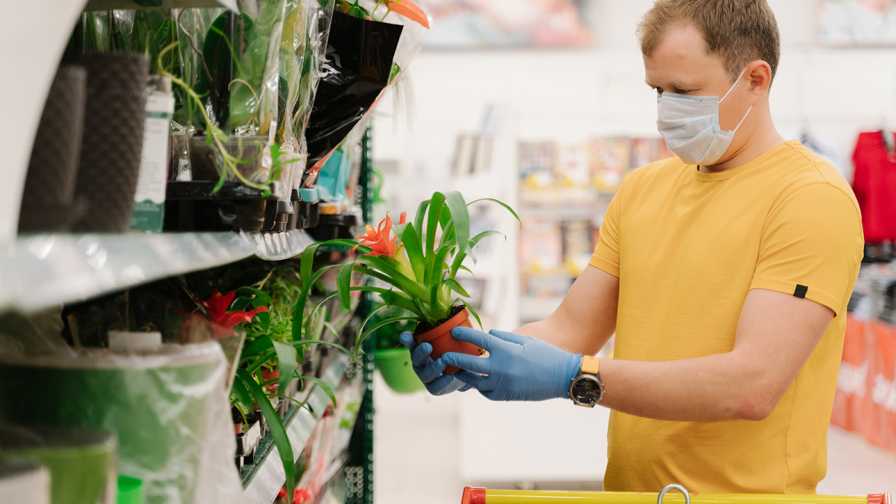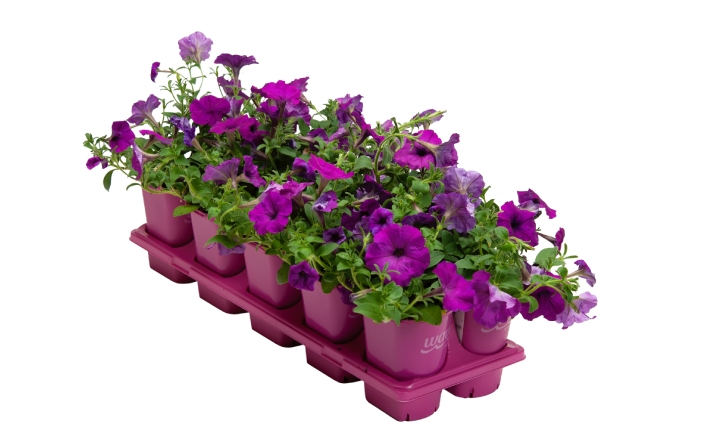Flower Growers Optimistic About COVID-19 Recovery
 A new survey of international growers and grower associations by the International Association of Horticultural Producers (AIPH) and FloraCulture International (FCI) shows nearly three-quarters (71%) of the industry believes that most growers will soon recover after the coronavirus crisis.
A new survey of international growers and grower associations by the International Association of Horticultural Producers (AIPH) and FloraCulture International (FCI) shows nearly three-quarters (71%) of the industry believes that most growers will soon recover after the coronavirus crisis.
The positive response from many of the 27 countries that participated is encouraging considering the bleak outlook highlighted in a previous survey, when 70% of respondents were expecting to see many growers going out of business by the end of 2020.
Most countries have re-opened garden centers (96%) and florist shops (85%), often ahead of other retail outlets. This recognition of garden retailers as an essential service and a safer shopping environment is a great boost for the industry, according to survey organizers
Garden retailers are strictly adhering to the new normal of social distancing, disinfecting, and contact payments, which are vital in demonstrating a responsible industry. About 78% still expect sales for this period to be worse than last year. However, 46% expect demand for plants and flowers in the coming weeks to be higher than at the same time the previous year. There is a clear sense of optimism for the future coming through the responses, as many are hoping to gain back at least some of the sales lost during this time.
Of course, the impact varies by sector, and those with more flexible sales windows are adapting more quickly to the shift in the demand pattern, which is ironically likely to create stock shortages in 48% of respondent countries.
The survey also showed that 78% of countries responding have government financial support mechanisms in place to support the industry, with 44% having access to support in paying staff wages, 59% having access to special support loans, and 33% having access to compensation for lost sales. However, very few countries have provided financial support explicitly focused on the needs of growers.
In Europe, only the Netherlands has a unique package for growers where businesses can make claims for up to 70% of lost turnover if sales were 30% down on the same period last year. In China, Chinese Taipei and South Korea governments have also provided additional funding to support promotional campaigns for growers and to reduce auction fees. Many countries continue to lobby their governments for a stronger relief package, but in reality, few are hopeful that this will succeed.
Despite this, there are still 22% of respondent countries that have no support mechanisms available to them. In these countries, including less-developed flower producing countries, the outlook is bleak, and with a potential global recession looming, there are real worries.
As respondents look to the future, they predict a speeding up of changes that had been coming slowly. 81% expect to see an increase in online sales, which in many countries have been the only way to buy flowers and plants over recent months.
As consumers have become familiar with this new way of buying ornamentals, it is likely that many will continue to use this channel. About 33% expect to see increased vertical integration in the sector, reducing the number of players in the supply chain. Another 56% expect to see a reduction in staffing by growers, and interestingly, 30% expect to see a reduction in the imported product, to the benefit of domestic production.
Grower associations have also proved their worth during this crisis, with many playing a vital role in arguing the case for growers to their governments. About 59% expect that the crisis has increased the appreciation of the value of trade associations.
“Our results show that many growers across the world are really struggling this year,” says AIPH Secretary General Tim Briercliffe. “Support from their governments is vital for their survival. However, it is encouraging to see optimism coming back as growers seek to urgently meet the needs of new waves of interest in garden plants and a renewed recognition of the value of plants and flowers to healthy and happy lives. The industry must build on these glimmers of hope to shape the sector for recovery and eventual growth.”










